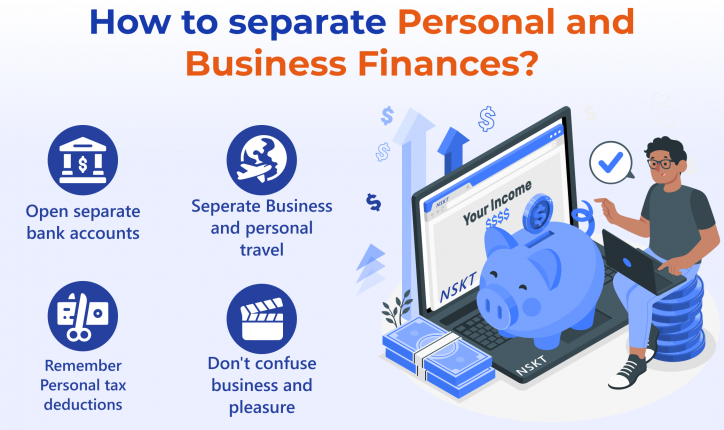
As a small business owner, it’s easy to blur the lines between your personal and business finances. After all, when you’re just starting out, it might seem more convenient to use one bank account or credit card for everything. However, this can lead to a host of problems down the line. In this article, we’ll explore why it’s important to separate your personal and business finances, and how to do it.
One of the most significant reasons to separate your personal and business finances is to protect yourself from legal liability. If your business is sued or incurs debts, your personal assets can be at risk if they’re mixed in with your business finances. Keeping them separate can help shield your personal assets from being seized to pay off any business debts or legal judgments.
Separating your personal and business finances is also crucial for tax compliance. When you file your taxes, you need to be able to show a clear distinction between your personal and business expenses. If they’re mixed together, it can be challenging to accurately report your income and expenses, which can lead to trouble with the IRS.
Keeping your personal and business finances separate can also help you gain greater clarity into your financial situation. By having separate bank accounts and credit cards for each, you can easily track your income and expenses for both your personal and business finances. This makes it easier to manage your finances, create budgets, and plan for the future.
Separating your personal and business finances also helps you maintain a professional image. It shows that you take your business seriously and are committed to keeping things organized and transparent. This can inspire greater trust from customers, vendors, and other stakeholders.
How to Separate Your Personal and Business Finances
Now that you know why it’s important to separate your personal and business finances, how do you do it? Here are some steps you can take:
By taking these steps, you can keep your personal and business finances separate and avoid the potential pitfalls of commingling your finances.
In conclusion, separating your personal and business finances is crucial for protecting yourself from legal liability, ensuring tax compliance, gaining financial clarity, and maintaining a professional image. By following these tips, you can keep your finances organized, secure, and under control.